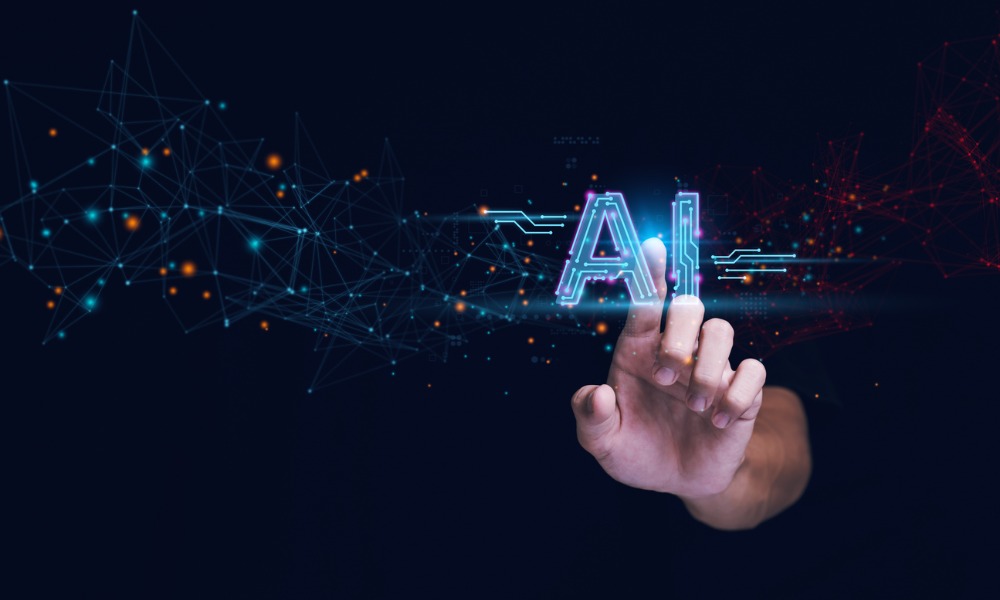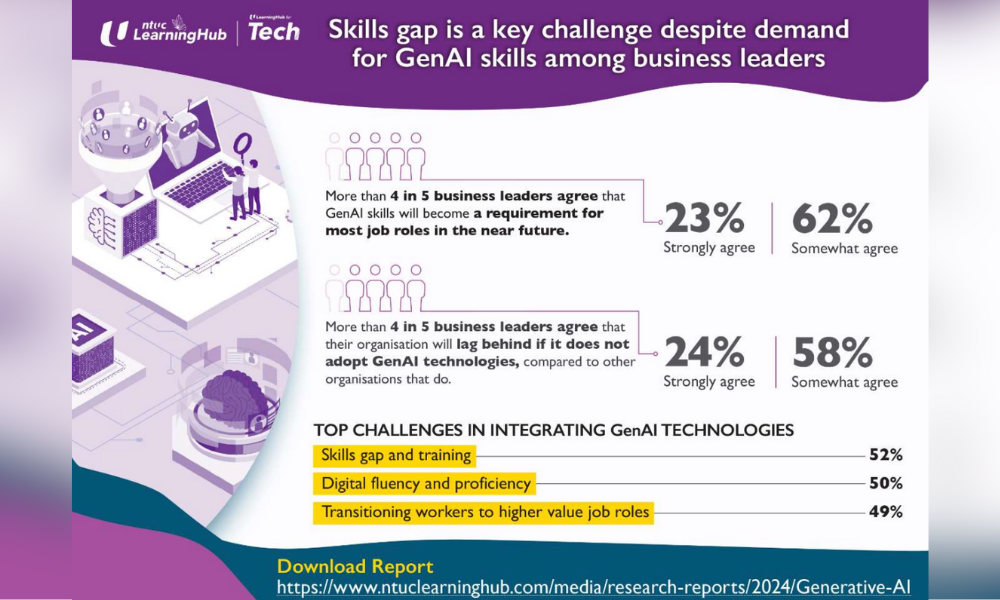
New report highlights gen AI's widespread impact on Singapore workplaces

Generative AI will not replace humans in Singapore, but it is expected to "amplify human strengths."
This is according to Amos Tan, chief core skills officer at the NTUC LearningHub, following the organisation's findings on the impact of generative AI on Singaporean workplaces.
According to the findings, business leaders believe generative AI will generate new job roles (87%) and redefine existing ones (92%).
Another 85% also agreed that generative AI will become a requirement for most job roles, with the most coveted skills being data analytics and insights (50%) and digital marketing (40%).
"The widespread adoption of Gen AI has profound impact on the workplace, underscoring the need for new job roles and the redesign of existing ones," said Tan in a statement.

So far, 87% of business leaders said they have adopted gen AI tools in their daily operations, which comes amid fears that their organisation will fall behind if they don't implement generative AI technologies (82%).
Tan said employers need to cultivate a "future-ready workforce" if they want to remain competitive in the market and be prepared for a generative AI-empowered workplace.
"This involves establishing a conducive learning environment with accessible training opportunities and fostering transparent conversations on the pressing need to acquire GenAI skills," Tan said.
Luckily, employers are already looking into upskilling their workforce when it comes to AI-related skills, according to the report.
Its findings showed business leaders want to train their employees on data analysis and insights (35%), data modelling (30%), digital marketing and advertising (28%), as well as content creation (25%).
Employers also need to prioritise the development of critical core skills, according to Tan.
Employers identified these essential critical core skills as digital fluency (41%), creative thinking (36%), system thinking (35%), design thinking (34%), and problem-solving (32%), which they considered necessary to support staff in a Gen AI-powered future.
"Through holistic skills set, employees can effectively harness the power of GenAI technologies to perform their work and achieve their organisations' desired business outcomes. Therefore, GenAI will not replace humans, but augment and amplify human strengths," Tan said.